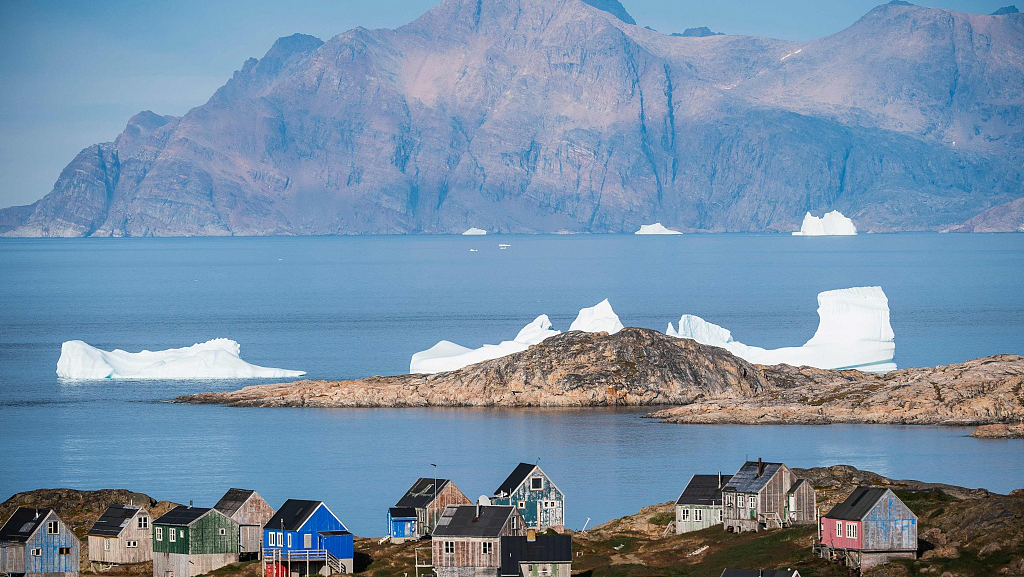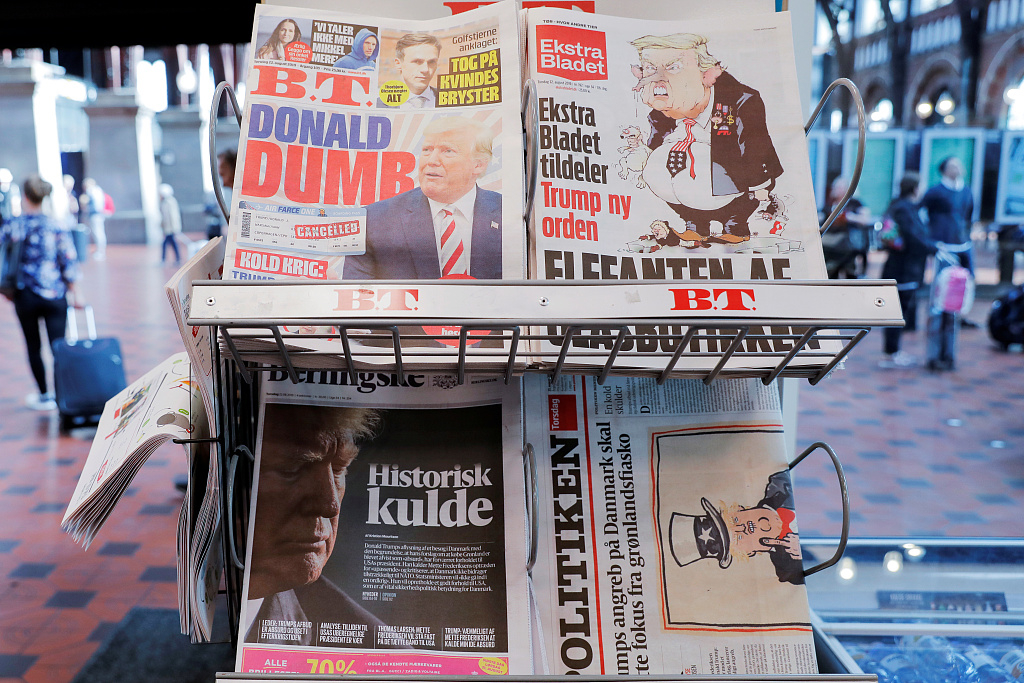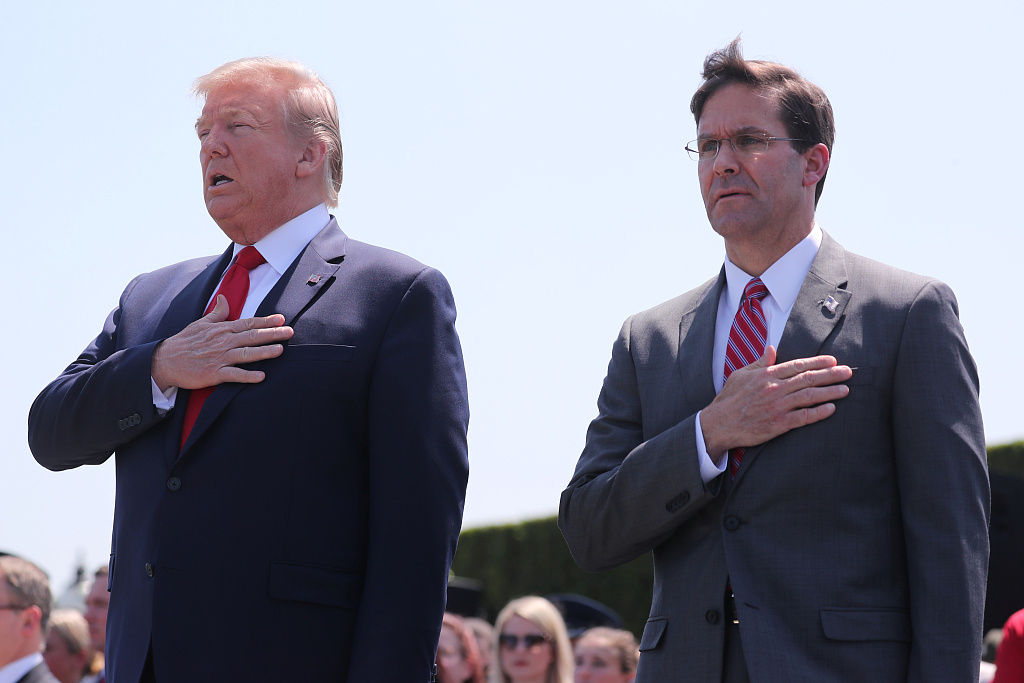

Editor's note: Rune Agerhus is a research fellow on the Middle East and Revolutionary Struggles at the Multipolarity Research Center, the founder and chairman of the International Solidarity Committee with Yemen (ISCY), editor-in-chief of Uprising Today. The article reflects the author's opinions, and not necessarily the views of CGTN.
Recently, U.S. President Donald Trump has shown great interest in purchasing Greenland. Although he received an "absurd" as a response from Denmark, what's behind his interest seems not absurd at all. In June 2019, the Under Secretary of Defense for Policy submitted a report to the U.S. Congress on the Artic Strategy, focusing on the objectives and priorities of the National Defense Strategy to supposedly protect the security interests of the U.S. in the Arctic in an "era of strategic competition."
It seeks to counteract China's Belt and Road Initiative in the Arctic, including Greenland. Since 1867, when Alaska was bought from Russia, the U.S. desired the strategic acquisition of Greenland to dominate the Arctic region.

A news stand at Copenhagen Central Station, Denmark, August 22, 2019. /VCG Photo
The Pentagon explained that the U.S. must build an alert in the Arctic, improve operations in the ocean, and strengthen a rules-based order in the Arctic. However, as the U.S. operates unilaterally, the primary objective of Washington is to derail the strategic alliance of Russia and China in the Arctic.
For the Pentagon, the Arctic region is made up of eight countries with sovereign territory that are members of the Arctic Council: Canada, the Kingdom of Denmark (which includes Greenland), Finland, Iceland, Norway, Russia, Sweden and the U.S. It ostensibly excludes China, although it has been identified as almost an Arctic country.
The parentheses attached to Greenland as part of the Kingdom of Denmark are striking. Trump's incitement to take control of Greenland and its nearly 56,000 people has been seen in a populate light, especially since the Kingdom of Denmark subsidizes the island and the Inuit natives in Canada and the U.S. have not done as well, especially when addressing the significant social problems they face.
The document emphasizes that "Russia views itself as a great polar power and is the largest Arctic nation by landmass, population, and military presence above the Arctic Circle. Russia's commercial investments in the Arctic region have been matched by continued defense investments and activities that strengthen both its territorial defense and its ability to control the Northern Sea Route (NSR)."
Because of this, the Pentagon calculates a "future Chinese military presence in the Arctic Ocean, potentially including the deployment of submarines to the region." And China maintains scientific research stations in Iceland and Norway and continues the development of energy and infrastructure projects in Russia, such as the Yamal liquefied natural gas project. The U.S. is speculating China is imposing greater influence on the Arctic region.
Therefore, a primary objective of the Pentagon is to restrict China and Russia to leverage the region as a corridor for competition that advances their strategic objectives. This is especially important considering the competition today increases in the Indo-Pacific region and Europe, as identified by the National Defense Strategy.

U.S. President Donald Trump (L) attends a welcoming ceremony for the newly-appointed U.S. Secretary of Defense Mark Esper (R), at the Pentagon in Washington, D.C., July 25, 2019. /VCG Photo
With the new Multipolar World rising, countries will find the attraction of the newly opened routes that were previously inaccessible but now revealed because of the melting ice-sheets. It is because of the new Arctic shipping lanes that China Ocean Shipping (Group) Company is among the companies significantly using this route. China has pointedly invested into the building of infrastructure along Russia's Arctic coast and its oil- and gas-wells there. For Beijing, the Arctic is a larger part of a grand strategy.
Although ships sailing on the NSR need Russia's permission to pass through, the route is set to rival the Suez Canal as it can cut shipping times from particular destination points. With Russia and China having amicable relations, the acquisition of Greenland is essential for the U.S. to assert greater influence over the other Arctic countries.
However, it also appears that Trump is willing to risk fruitful relations with his Danish allies to achieve this goal. Although Denmark has closely served U.S. foreign policy, this was not enough to discourage Trump from lambasting the Danish leadership for not considering his proposal. Instead, this demonstrates the desperateness in Trump's desires to control more significant portions of and exert greater influence over the Arctic.
It is for this reason that the Pentagon explicitly seeks to undermine Russia and China as stated by the Pentagon – whether it will succeed remains to be seen.
(If you want to contribute and have specific expertise, please contact us at opinions@cgtn.com)

Copyright © 2018 CGTN. Beijing ICP prepared NO.16065310-3
Copyright © 2018 CGTN. Beijing ICP prepared NO.16065310-3